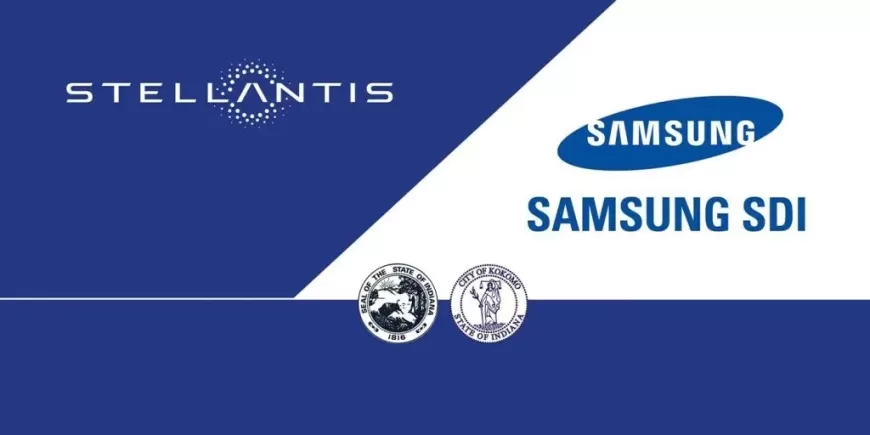US Approves $7.54 Billion Loan for Stellantis-Samsung Battery Plants in Indiana
The US DOE plans a $7.54 billion loan to Stellantis and Samsung SDI for two EV battery factories in Indiana, aiming to boost EV production by 2025.

The U.S. Department of Energy (DOE) is planning to lend $7.54 billion to help Stellantis, the parent company of Chrysler, and Samsung SDI build two electric vehicle (EV) battery factories in Indiana. These plants will make advanced lithium-ion batteries for EVs, a step towards cleaner transportation.
The loan includes $6.85 billion in main funding and $688 million in interest. Once finalized, the money will go to StarPlus Energy, the joint venture between Stellantis and Samsung SDI. Together, the Kokomo, Indiana factories are expected to produce enough batteries annually to power about 670,000 EVs.
When Will the Factories Open?
Stellantis says the first factory should be up and running by early 2025, with the second one following in 2027. The company is also building another battery plant in Canada with LG Energy Solution as part of its wider EV plans.
Government’s Push for More EVs
This loan is part of the DOE’s larger efforts to support electric vehicle production. In July, the DOE announced plans to give Stellantis $335 million to reopen a closed factory in Illinois for EV production and $250 million to upgrade another Indiana plant for making EV components. However, these grants haven’t been finalized yet.
The DOE is also considering a $6.6 billion loan to Rivian to help build an EV factory in Georgia, which is expected to produce affordable EVs by 2028. Last year, the government approved $2.5 billion for General Motors and LG Energy Solution to build battery factories in Ohio, Tennessee, and Michigan. In June 2023, the DOE proposed $9.2 billion for Ford and SK On to develop battery plants in Tennessee and Kentucky, the largest such loan ever proposed.
What Could Delay the Loan?
While this proposal is a big step, it’s not certain the loan will be finalized soon, especially with potential political changes. President-elect Donald Trump has been critical of the Biden administration’s focus on EVs, which could affect future support for such projects.
The DOE is using its Advanced Technology Vehicles Manufacturing program to fund these initiatives, pushing for a strong U.S. presence in the growing EV market. By supporting projects like this, the U.S. hopes to play a leading role in the global shift to electric transportation.
































































